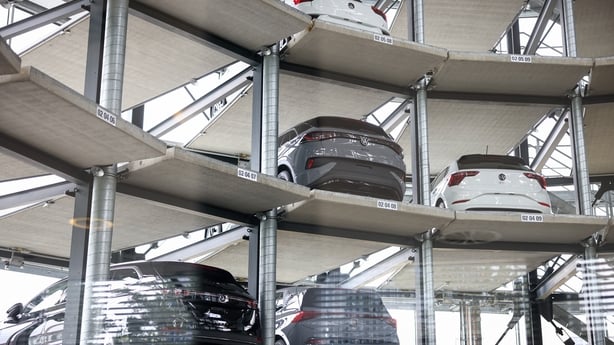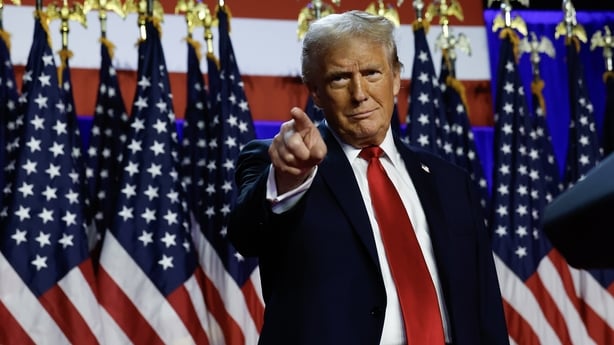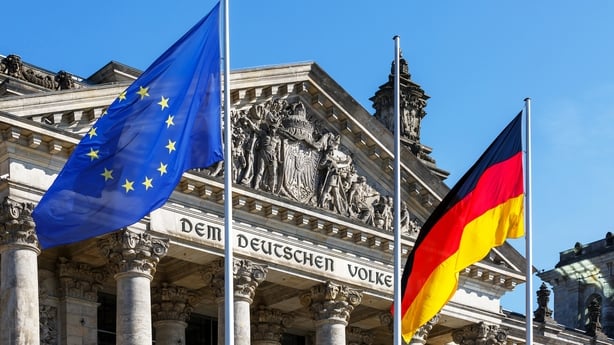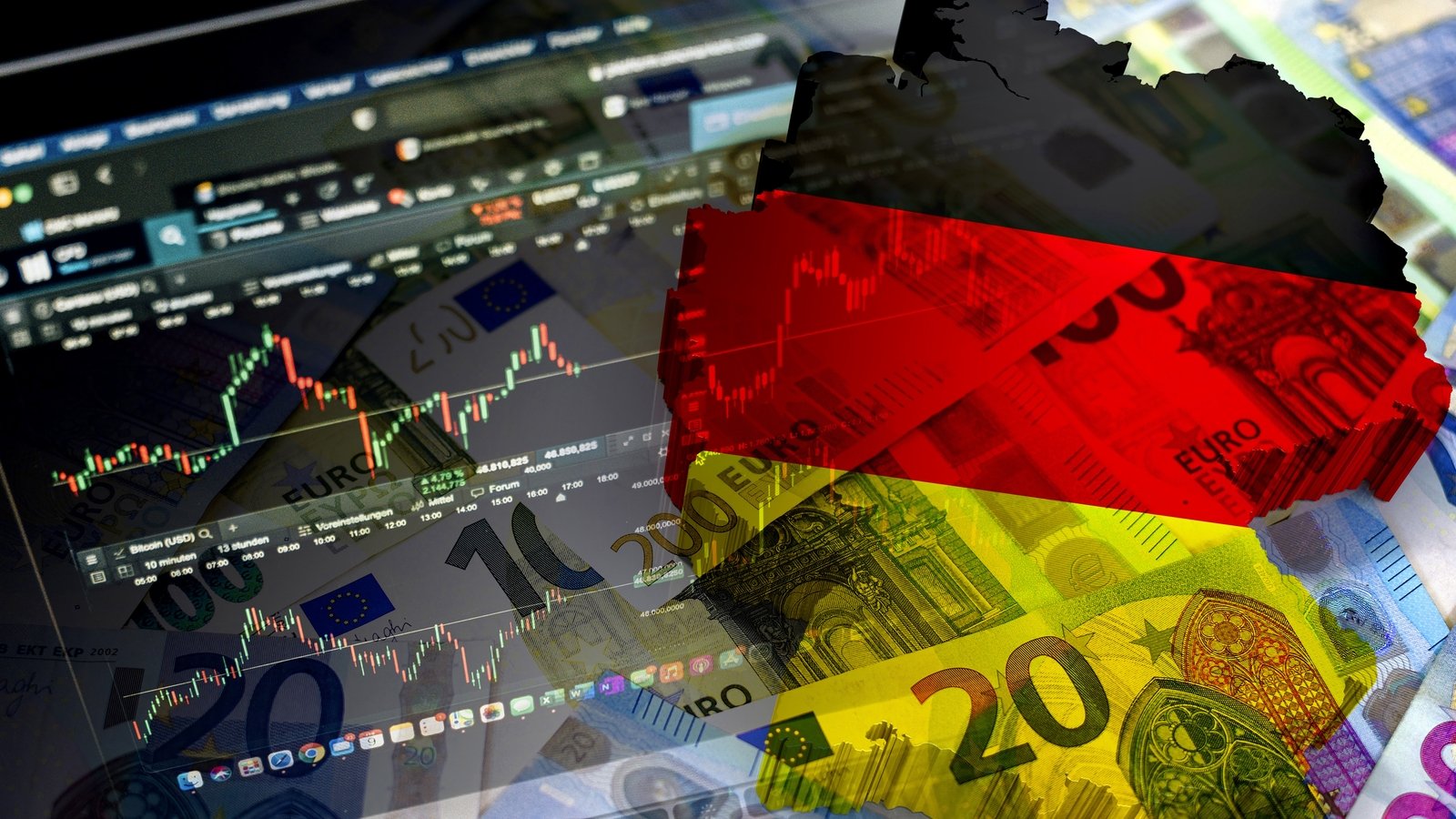It’s the world’s third largest economy, but Germany is currently the worst performer among the Group of Seven major economies.
The country is struggling with high energy costs and eroding competitiveness and is experiencing some of the worst growth rates in Europe.
This week the economy was further hit when Chancellor Olaf Scholz sacked his finance minister, paving the way for a snap election after months of bickering in his three-party coalition.
The coalition collapse is likely to deal another blow to consumption and investment in the coming months, which is already poised to decline, with a third of German companies indicating in a recent survey plans to scale it back.
“In combination with the Trump win, economic confidence is likely to drop significantly and makes a contraction of the economy in the fourth quarter more likely,” said Carsten Brzeski, global head of macroeconomics at ING.
There is some optimism however that with a potential March election and a new government it could end the paralysis within the economy.
Why is Germany’s economy underperforming?
Germany’s economy has been shrinking for two years and has been in a state of stagnation for around five years now with some ups and downs.
The level of GDP is not higher now than it was in 2019 when a series of crises followed; the COVID-19 pandemic, Russia invaded Ukraine, gas and oil supplies failed and Germany slipped into an energy crisis.
There was a deep recession in 2020 followed by a recovery.
However, the recovery was interrupted by the energy price hike and an inflation surge.
Now, Germany is ranking very low in terms of growth rate forecasts among European countries.
In one word Germany’s economy can be described as “bad”, according to Prof Timo Wollmershaeuser, Deputy Director of the ifo Center for Macroeconomics and Surveys and Head of Forecasts.
“For the last five years, it’s stagnating and in German economic history this is something which is extraordinary. So, I would say the situation is bad,” Prof Wollmershaeuser said.
What other factors are affecting the economy?
Germany is experiencing large structural changes in its industrial sector.
It has been losing competitiveness over the last five years due to a number of factors including high taxes, high energy costs, decarbonisation issues for automakers, shrinking working age population and the new role China is playing in motor and machine manufacturing.

The energy intensive nature of some of Germany’s manufacturing sector has meant that it was particularly exposed to the energy price shock resulting from the war in Ukraine.
Over the last five to ten years Germany has been losing market share in these core areas of the manufacturing sector.
Industrial production today is 12% lower than it was in 2019.
Employment is also going down in the sector as companies relocate production to other countries where there are cheaper energy and production costs.
In addition to the structural changes in industry, many companies were labour hoarding after the pandemic, fearing it would be difficult to hire people again.
When the economy started to weaken they held on to staff for when the temporary weakness abated.
But this led to companies keeping more employees than economic activity warranted.
What impacts are domestic and international politics having on the German economy?
There have been record levels of economic uncertainty since the start of the fractious three -party ruling coalition which has not been good for the German economy.
The collapse of Germany’s ruling coalition is set to bring more economic pain in the months ahead but there is hope that a new government could bring economic policy guidance and certainty.
“If you look at the share prices in Germany for example, I mean they are celebrating the end of the grand coalition,” said Prof Wollmershaeuser.
“But it is not really clear what comes next, we don’t have a new government at the moment. Uncertainty remains and uncertainty is not good for the economy.”
Europe is the biggest market for Germany, but 10% of its exports go to the US.

During his campaign President Trump said he was going to impose sizeable tariffs which would not be a positive move for German or any European trade.
Acknowledging that the new President also said he would make American people more prosperous, Prof Wollmershaeuser said this could be something positive if they have more income and demand more goods and services from Germany.
“Overall, the impact will be negative if he is imposing these taxes. We don’t know how high they will be, but it is also clear that the higher they are the more negative they will be,” he said.
Is Germany already in a recession?
A technical recession occurs when there is a decline in two consecutive quarters, but Germany dodged a recession in Q3.
There was a decline in the second quarter, but in the figures just published by the German Statistical Office there was a slight increase of 0.2% over the previous quarter.
But the bigger picture is of an economy that is struggling and there are some very prominent risks, according to independent economist Simon Barry.
Germany is a very open and very large economy and is at risk by what’s happening in the global trading environment.
The prospect of Trump’s tariffs and how other countries respond to it, starting from an already weak position, compounded by domestic political turmoil could leave Germany susceptible to several threats.
“It’s just really unwelcome timing that these things are coming together when the economy is already pretty weak and pretty vulnerable,” Mr Barry said.
“The picture in Germany, while at the margin on the latest figures was a bit better than expected, and that’s good and welcome news, I think there are prominent downside risks that are very much in play for the German economy at the moment.”

What impact could these risks to Germany have on the rest of Europe?
One of Germany’s key defining characteristics is its size, making up 30% of the eurozone economy.
It is also very well integrated and does a lot of trade with other eurozone countries as well as with the rest of the world.
A struggling Germany is not good for its eurozone partners. For example, if manufacturing is down in Germany, the components it requires from other countries will also be reduced.
If sizeable tariffs are introduced by the new Trump administration, it will not only impact Germany as one of the US’s biggest trading partners, but could escalate a serious trade war between the EU and the US.
How would a serious recession in Germany impact Ireland and everyday living?
First of all, it is unlikely any recession would ever be as bad as 2008, especially in Ireland.
And despite Germany’s woes, Ireland’s exports remain strong there.
After the US, Germany and the UK are Ireland’s biggest export partners.
According to CSO figures covering the goods trade from January to August this year, Germany accounts for almost 10% of all of Irish goods exports.
One thing that offers a bit of encouragement, according to Mr Barry, is that despite the weakness in the German economy so far in 2024, Irish exports to Germany are actually up over 5% over the first eight months of the year.
“The most important feature is that Irish exports to Germany are very much dominated by pharma chemicals,” he said.
“In some cases, those type of products tend not to be as susceptible to cyclical variations in economic performance, in other words, sometimes they can be acyclical.”
Despite these figures, bad news for an economy as large and influential as Germany pulls the rest of Europe down.
Mr Barry said even though Irish exports may currently be showing resilience, it’s likely there is going to be some kind of underlying impact on our trading performance.
“The weakness in Germany will spill over into other countries and Irish exports will be less strong or weaker than they otherwise would be, so potentially lower trade volumes,” he explained.
In terms of everyday living in Ireland, how the German economy is performing can influence interest rates here.
The rates are set and determined by the ECB which looks at the overall performance of the eurozone economy, which is heavily influenced by the weakness in Germany.
“One of the factors that is likely to contribute to further downward pressure on interest rates in the eurozone, including in Ireland, is the fact that the German economy is not performing particularly well,” Mr Barry added.
“So that’s another channel of influence that will directly impact folks here in Ireland where the prospect for further declines in interest rates is partly related.”
Best and worst case scenarios for the next 12 months
The best scenario would include the Trump administration backing away from some of the rhetoric it emphasized in the campaign.
If fresh elections happen quickly in Germany and have a decisive outcome it might also alleviate the period of recent political uncertainty.
Private consumption appears to be starting to recover in Germany and Prof Wellmer is optimistic that the first indications for the second half of the year are that retail trade is increasing.
“As much as prices have increased over the last two and a half years or so, purchasing power is back and wages are still increasing by rates that are much higher than the 2% inflation that we have,” he said.
“I think this is a good sign that private consumption will return and I’m quite optimistic that the recession or stagnation will not continue at least in the next year.”
The worst scenario would include if the Trump administration presses ahead immediately with major tariff increases and there is widespread retaliation from other countries, ending in a global trade war.
While if Germany delayed elections or has an election that doesn’t yield a decisive outcome, or if it takes a long time to form a government and put fiscal and budgetary policies in place, the lack of clarity will impede the prospects for a German recovery.
Mr Barry described the world as still feeling like its very fraught geopolitically.
“There’s a range of different outcomes there,” he said.
“Let’s see how things unfold and let’s hope that not just the geopolitics, but also the economics of the geopolitics plays out in a way that avoids some of those really pronounced downside risks.”
Additional reporting by Reuters

